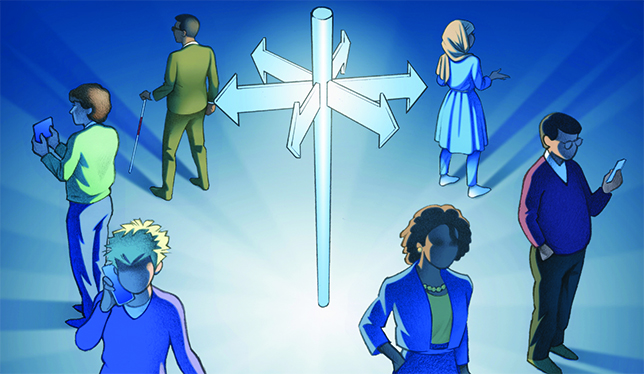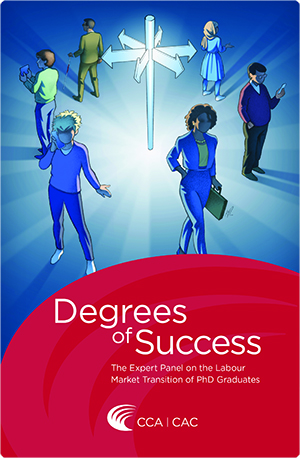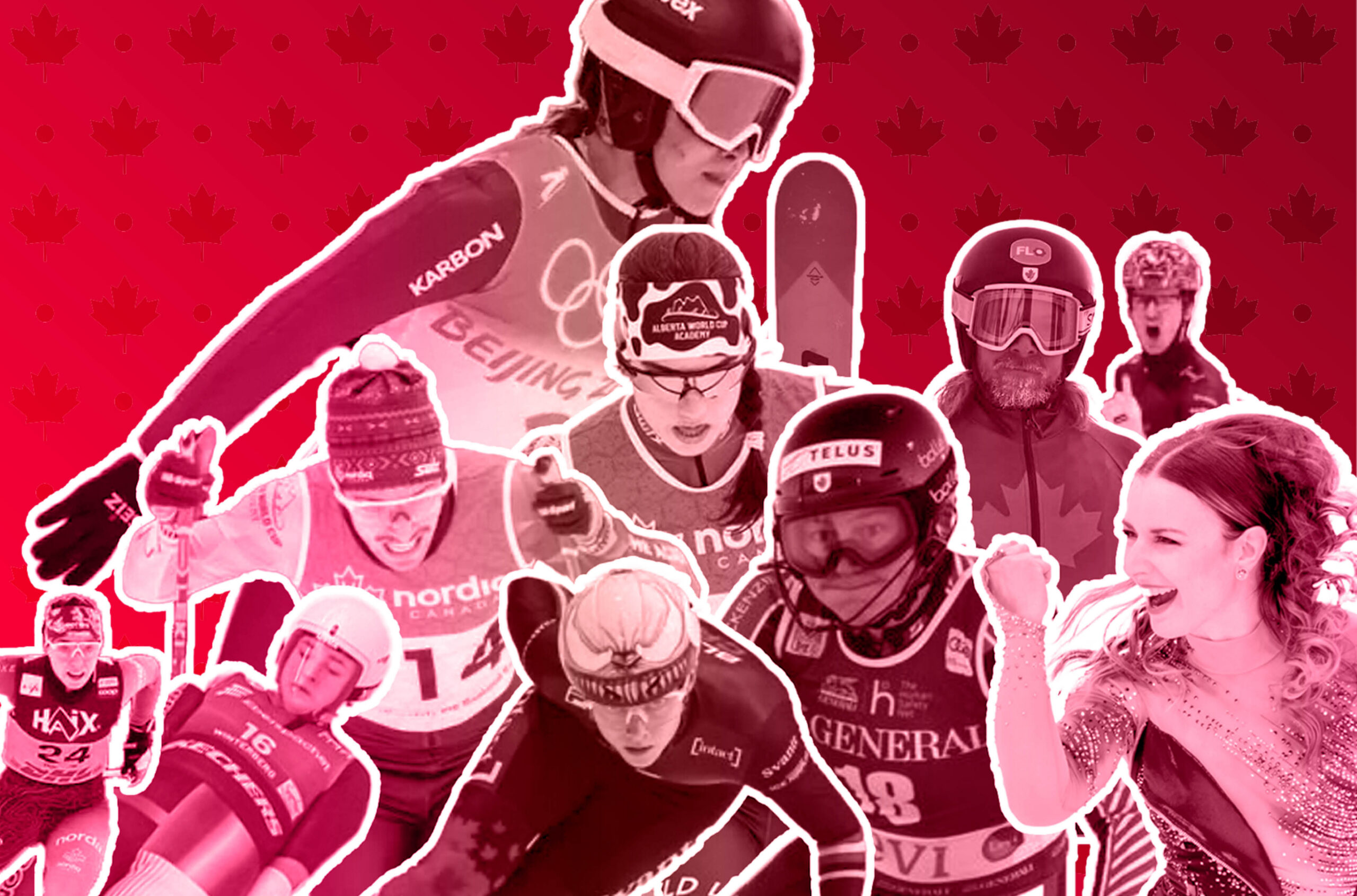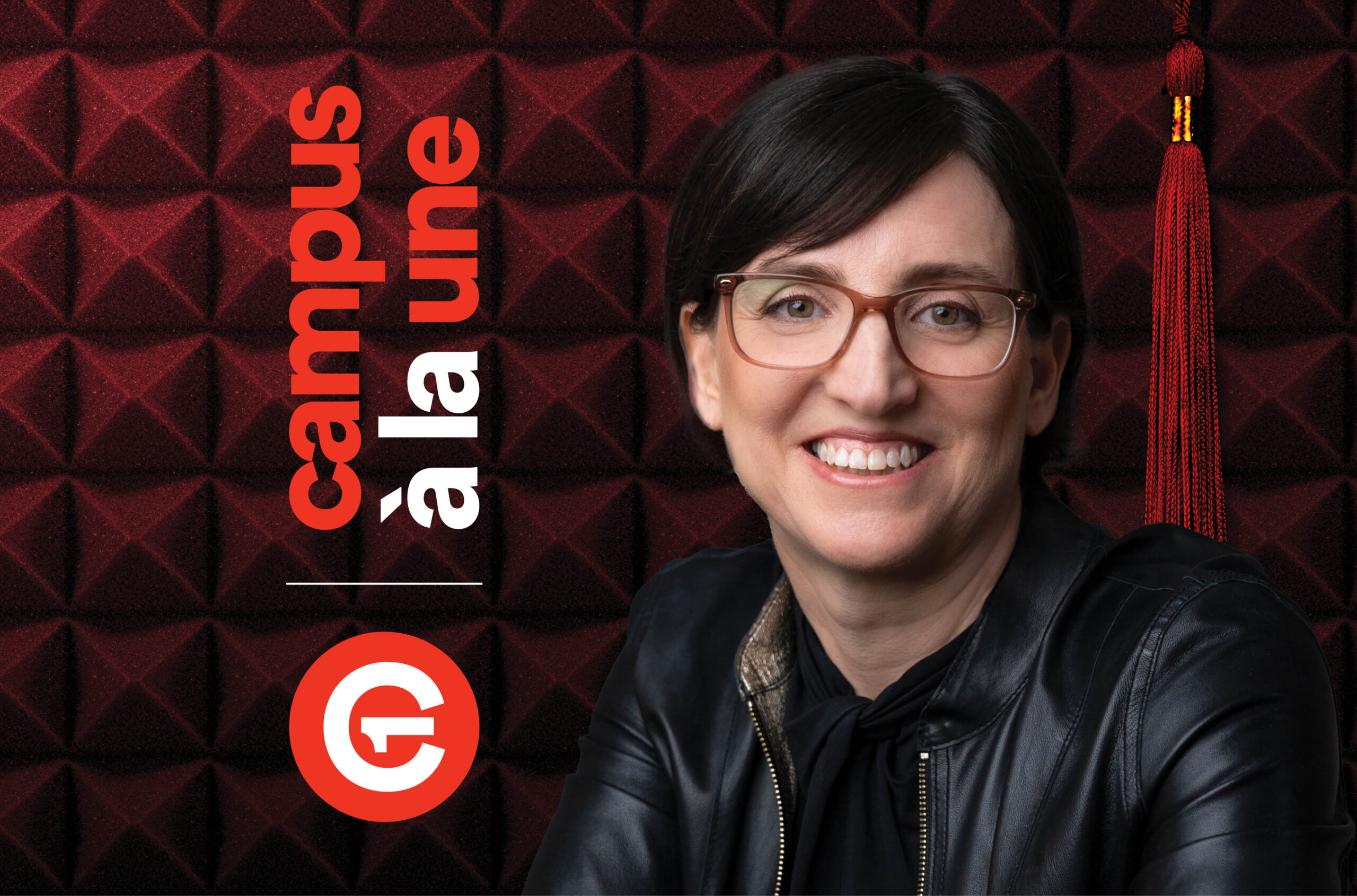The mismatch continues between PhD holders and their career prospects
New expert report from the Council of Canadian Academies finds a growing number of doctoral graduates in Canada is having trouble transitioning to the labour market.

Canada has an academic labour mismatch problem: more people than ever graduate with PhDs, but after completing these intensive programs they often face limited career prospects in academia and beyond. This represents a significant untapped source of talent for the country.
“Students go into PhD studies for various reasons. They tend to be passionate about their field of study. They also want to use their knowledge and their training and their passion to contribute,” says Elizabeth Cannon, president emerita of the University of Calgary.
To better understand the challenges PhD students face in transitioning to the labour market, the Council of Canadian Academies convened a 12-member expert panel in 2019 headed by Dr. Cannon. The CCA was responding to a request from Innovation, Science and Economic Development Canada. The resulting 220-page report, Degrees of Success, was released on January 26.
 PhD programs cost money for governments, universities and students. Students invest not just financially, but also in terms of their time, putting in four to six years on average to complete their programs. Yet, after graduation, they often end up as part-time instructors vying for limited tenure-track positions, unsure of how to market their skills in the non-academic job market.
PhD programs cost money for governments, universities and students. Students invest not just financially, but also in terms of their time, putting in four to six years on average to complete their programs. Yet, after graduation, they often end up as part-time instructors vying for limited tenure-track positions, unsure of how to market their skills in the non-academic job market.
This situation “is ripe for dialogue. It’s ripe for reform,” says panel member Bryan Gopaul, an assistant professor at the Warner School of Education and Human Development at the University of Rochester who hails from Canada and researches the experiences of graduate students. He notes that the PhD has been around for centuries and has managed to stay the same in many ways while also shifting over time – and may need to change again to stay relevant.
The number of people graduating with PhDs in Canada has been increasing at a fairly steady rate since 2002. In that year, according to Statistics Canada, 3,723 students graduated from PhD or equivalent programs across the country. By 2017 the number had more than doubled, reaching nearly 8,000. Yet the number of tenure-stream professors in Canada has remained relatively constant since 2009, at around 41,000 in any given year.
The combination of increased PhD holders and a declining number of new tenure-track positions has led to greater competition for fewer jobs. What’s more, Canadian graduates are competing with graduates from all over the world for a diminishing number of positions.
“Traditionally, PhDs were seen, and still are seen, as the pathway to a tenure-track academic career, and what the report shows is that the pathway is not as large as it has been,” says Dr. Cannon. According to the report, about 19 percent of PhD holders working in Canada hold tenured or tenure-track faculty jobs. The rest end up in a range of positions. They sometimes serve as contract lecturers, a modestly paid and precarious career path.
“The private sector has not increased its capacity to take on these additional PhD grads, who could use their skills and talents to contribute to the economy,” says Dr. Cannon. The same is not the case in other countries, she says, notably Australia and the U.S., which graduate more PhDs, many of whom companies eagerly hire.
In Canada, graduate supervisors may discourage their students from exploring jobs outside universities. Dwayne Benjamin, a professor in the department of economics and vice-dean, graduate education, in the faculty of arts and science at the University of Toronto, says that’s seldom done intentionally. “Professors take great pride in the outcomes of their students. They know a lot about the academic labour market, but not much about jobs outside universities. And there’s a sense that, with PhD students, you’re [expected] to be the next generation of scholars,” he says.
Some PhD programs link well to non-academic jobs, the panel notes. Business PhDs are the top earners five years after graduation. They are followed by PhD graduates in engineering, mathematics and computer science, health, and education, all of whom have similar earnings. The lowest earners are PhD graduates in humanities and sciences. The differences in earnings are significant, the report notes, with PhD graduates in business earning over 80 percent more than those in humanities and sciences at the five-year mark.
Dr. Benjamin says that some sectors embrace PhD graduates because the employers in these sectors understand the value of their skills. “Computer science does well, evolutionary biology grads don’t do as well,” he says. Physics grads often get scooped up by Bay Street firms keen to utilize their complex math skills. “Some degrees have connections to jobs, and it varies.”
Discrimination and unconscious bias also can impact PhD holders. Men earn 19 percent more than women five years after finishing their doctoral degrees, while woman are more likely to be unemployed or working part-time. There are fewer racialized students at the highest levels of education – those with disabilities also struggle – with few mentors and colleagues facing similar challenges, leading to feelings of isolation. In particular, Indigenous students feel the burden of so-called tokenism, getting frequent requests to serve on panels and committees, which take time away from their research and studies.
While taking an advanced degree entails the honing of many important skills, a PhD doesn’t prep students for the work world, plus grads don’t realize what employable skills they actually have. The report explores how some PhDs don’t even learn how to succeed in academia – the brightest researchers, for instance, often earn grants that permit them to skip serving as teaching assistants, so they may never learn vital teaching skills.
While much of the data look dismal, Dr. Cannon says universities have made changes to better link PhD students and work. “It’s not as if institutions are standing still,” she says. The report devotes a chapter to promising initiatives such as mentorship, professional development and work-integrated learning programs.
The report draws no conclusions nor makes recommendations – and does not answer the big question of whether or not Canada graduates too many PhDs – but offers a data-driven picture of what’s going on. “The report, in one hub, pulls all this information together. It supports some really comprehensive conversations grounded in strong research and findings,” says Dr. Gopaul. “I think the report highlights how complex it all is, and highlights that there are so many factors.”
Dr. Cannon says the fate of advanced-degree holders impacts innovation and the economy at an important level, so the debate “I think is very timely and very important to the future of this country.”
While not clear what effective changes to the PhD might look like, Dr. Benjamin says any shift related to the labour market entails a philosophical shift. “This is another dimension of how universities are changing away from being about the pure pursuit of knowledge.”
The report’s key findings
- The number of PhD graduates in Canada is growing while the number of open tenure-track positions is stagnant or declining.
- Non-academic sectors have not significantly increased their uptake of PhD graduates.
- The labour market outcomes for PhDs vary significantly by gender and discipline, and the economic return of a PhD is lower for younger graduates compared to PhDs in general.
- Academic culture can support or hinder the transition of PhDs to the labour market.
- PhD graduates may not be aware of the skills and abilities they could bring to a future employer, or there may be a mismatch between the capabilities desired by employers and those gained by PhD graduates during their studies.
- PhD graduates from Canadian institutions are presented with the opportunity, or in some cases necessity, of seeking employment outside Canada following their studies.
Featured Jobs
- Anthropology of Infrastructures - Faculty PositionUniversité Laval
- Canada Impact+ Research ChairInstitut national de la recherche scientifique (INRS)
- Engineering - Assistant Professor, Teaching-Focused (Surface and Underground Mining)Queen's University
- Director of the McGill University Division of Orthopedic Surgery and Director of the Division of Orthopedic Surgery, McGill University Health Centre (MUHC) McGill University
- Soil Physics - Assistant ProfessorUniversity of Saskatchewan















Post a comment
University Affairs moderates all comments according to the following guidelines. If approved, comments generally appear within one business day. We may republish particularly insightful remarks in our print edition or elsewhere.
17 Comments
Oh, for pete’s sake! There have been virtually no jobs for PhDs in Canada in many fields since the late 1980s! And those few who earn PhDs in non-STEM fields really do not WANT to get “great” non-academic jobs doing things like working for cell phone stores (yes, that was an actual suggestion) or coaching other academics who won’t get university jobs either. People go into academe because they want to be in academe, and for decades, the universities have outright deceived their graduate students by saying that everyone will retire in X years (some did, some didn’t, but almost all were replaced by adjuncts) or any number of other things that just make you feel that if only you were good enough, if you published one more article or networked that little bit more or if you’d only been able to go to Harvard, you would get one of the few prized tenure track jobs. The latter is, of course, BS. I left a PhD program in the humanities – thank heavens, or I’d have starved. My husband finished his, and was the #1 ranked graduate student in his entire discipline at a top global university. That and $5 gets you coffee at Starbucks. In the 22 years since he got his PhD, there have been precisely THREE jobs in his field advertised in Canada. Needless to say, we’re no longer in Canada. Canadian universities – and others – should stop admitting so many people to their PhD programs in the arts, humanities, and social sciences, at the very least. There are no academic jobs for them, and few want to do a PhD in American literature to then work at a cell phone company. You don’t need that degree to do that job, and all you end up with is disappointment, frustration, and possibly a huge student loan. If only a half-dozen true superstars got into these programs annually for the next 2-3 decades, maybe we could finally clear the backlog, and maybe people could get jobs. You might as well be disappointed by not getting into a program as by spending all your energy and money getting a degree for which you can find no related means of earning a living afterward. You’d save yourself a lot of heartache and money.
I am an economist. I was talking about this problem with a colleague, an anthropologist. My PhD (mostly Chinese) doctoral students do not place well in academia in Canada, but they can get a good job in Chinese research universities. Some opt to stay in Canada, and take a job in a bank. Over the years I have built contacts with local banks, and my graduates never go hungry, so to speak.
My Anthro friend has stopped taking in doctoral students, as she finds it immoral. She says they come to the doctoral program thinking they will land a job in Anthro deps in Canada or US. And that is not going to happen. Period. Telling them that there is not a chance to get that type of job just makes them change supervisor (and no, they do not land an academic job when they graduate).
I ask: with what (moral) courage one takes on doctoral students in certain disciplines without telling them that 1000 to 1 they won’t become a professor? A honest conversation, and the creation of contacts, could go a long way to alleviate the desperation of these young. It is heartbreaking seeing them crumble when they realize the type of jobs they eventually land.
I agree. I entered a PhD program in English literature, hardly aware that we were not going to replace the tenured professors who were teaching us. We went on faith that there would be a need to replace the previous generation but, when the time came, tenured positions were just cut and most of us either were part-time, associate, or contract workers doing the marking and lecturing that no tenured prof wanted to do. And, forget the publishing aspect of it. More publications wont make a difference. Unless you become a best-selling, YouTube superstar, public intellectual, your career will be frustrating and poorly payed.
I finally left Canada to work oversees at different private colleges (on contract) and managed to save enough for retirement after 40 years in the classroom. And I never taught English Lit. but communication, business English, ESL, EAP, etc. Financially, it was a waste. The only thing that kept me teaching was the love of the job and the travel it offered.
I propose that doctoral programs should be mandated to post on their website the number of PhD graduates in a tenure track job each year for (former) students up to 5 years out from graduation, together with the hiring institutions (not the name of the students).
Some doctoral students live in a dream, and they need data to wake up.
The report should have provided a more granular assessments, at the program-area level. This thype of info is crucial for prospective students.
If someone enters a PhD program NOT knowing that their chances of getting a tenure-track job at a good university are very small, they can’t be very smart to begin with. Seriously.
And if someone goes to a 2nd-rate university, gets a 2nd-rate PhD, and thinks they can compete for academic jobs with those from the better universities (who are better trained, had better credentials to begin with, and do a better PhD), then, once more, they can’t be very smart. This is often a problem in, say, the Humanities.
If such PhDs end up as life-long adjuncts, sessionals, part-time, non-tenurable, etc, that is their choice. But then they often shout out that it is not fair. What? Not fair that weren’t good enough to get a job as a real professor?
In the hard sciences, there are lots of jobs in government and the private sector, and they will do well.
RA Henderson your comments are…just unkind. And you seem to place a lot of value on the ruthless competition among institutions and students for “the best and the brightest” that makes universities rife with cynicism and stress.
Many factors can lead someone to pursue a PhD besides “stupidity.” PhDs can be misled about their job prospects by profs who either don’t know or don’t care about the ultimate fates of their grad students. Students who lack cultural and social capital may in earnest not know what they don’t know when they sign up for a PhD.
Certainly the massification of higher ed means churning out more graduate students of lower quality to a certain extent, but it also means an increase in the absolute numbers of people who are well qualified for academic positions. At some point the ranking game gets to a place where you are comparing apples to apples, and inventing bizarre criteria to screen out candidates.
This is not a system of hiring and ranking to be celebrated as “academic quality” or “academic integrity.” It is dysfunctional with a lot of elitist window dressing that serves no one but higher level admin and academic rockstars who have clawed their way to the top.
With reference to Laura Servage’s response to R. A. Henderson, his remarks are not only unkind but border on elitism. I disagree with his comments about 2nd – rate universities and 2nd – rate PhDs, as if the only worthwhile degrees are issued by the two or three best known institutions in our country. From my observations, the quality of a degree has much more to do with commitment to scholarship and the academic and scientific leadership associated with individual programs as offered at Canadian universities.
On the other hand, potential PhD candidates, do indeed have a responsibility to familiarize themselves with job opportunities in their respective fields before embarking on a 4 to 6-year journey that provides few guarantees and limited hope at the end of the trip.
It doesn’t take a genius to consider the number of PhD candidates a supervisor has versus the number of jobs held by said supervisor. If you think/thought you’d naturally replace a retiring faculty member without considering the 10+ others salivating over that same position then perhaps you have no one else to blame but yourself.
Furthermore, I think that a more competitive environment would significantly reduce the number of PhD students to a more sustainable level. It’s obvious that degrees are being handed out haphazardly and one of the negative results is too much competition for too few jobs, especially when merit is less emphasized.
Drs A D Boyd and A C Gross wrote a bilingual report for the Science Council of Canada in the 1970s entitled ‘Education and Jobs’ making several recommendations…which may still apply today… even as the focus was on just science and engineering graduates.
How much is the lack of a mandatory retirement age contributing to generational inequity in our profession?
When tenured faculty are told to publish or perish and when funding agencies like NSERC, CIHR etc. will not award good grants unless the applicant has a long publication record, then faculty will hire as many PhD students as they can to keep up their research output. This is what happens when research funding is so scarce and hard to come by. On the other hand, if there was less pressure to publish then that would breed complacency among faculty and inexorably lead to mediocrity. I have visited countries where faculty don’t have to exert themselves much to get funding and their research productivity is predictably low. That is not a good system either.
There is a lot of misdirected anger here. It is not the supervisor’s fault, nor the university’s, nor the student’s that there are fewer jobs for PhD graduates. (Nor BTW do we have first/second rate programs — the Canadian system of public universities is far too highly regulated. Instead we have big and smaller universities and every measurement of impact is correlated with size, regardless of whether the big institution has a relatively poor supervisory record.) The fundamental issue and one that should be the focus of all anger is the steady decline of funding to universities from provincial governments. The lack of funding means fewer highers and greater need for student ‘income units’ and the fees they pay. That is the basic problem.
Tom writes: “Nor BTW do we have first/second rate programs — the Canadian system of public universities is far too highly regulated. Instead we have big and smaller universities and every measurement of impact is correlated with size, regardless of whether the big institution has a relatively poor supervisory record.”
Hmmm, can’t agree at all, Tom . . . it is clearly NOT the case that Canadian universities all have equally rated PhD (or even undergraduate) programs), and that the can only be differentiated by big or small.
Canada has just a few universities close to the top twenty in the world (according to many measures and obvious accomplishments, entrance requirements, funding, rigour of program, etc), and Canada has some in ranked 700-1000 in the world. If you’ve had any experience of the quality of grad students across universities, as well as the quality of supervisors and resources, there are massive differences. (And if you look at the best places in the world, btw–say Harvard and Princeton–they are barely mid-sized; size and excellence to not correlate.) When you interview newly graduated PhDs for jobs, where they have been is hugely apparent.
This is an important report that presents worrisome findings.
Unfortunately it does not make recommendations.
This may reduce the probability that authorities pay attention to it and, more importantly, take appropriate action.
The problem is that research universities are simply producing too many Phds. They need to cut back on the number of Phds especially in the social science and humanities.
Do you have peer reviewed articles about this topic: Academic/PhD precarity?
PhDs are well suited for non-academic jobs in governments, both federal and provincial. The Public Service employers need to swoop in, and recruit these highly qualified candidates instead of letting them stagnate in dead-end ‘permanent postdoc’ positions.